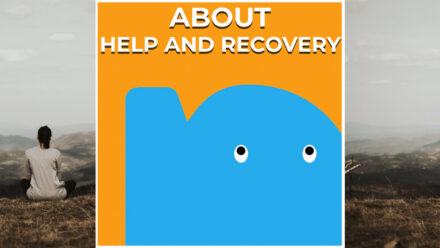
The disease model in mental health. Why a mental healthcare system based on it can make people ill– and how we can do things differently.
Why can a mental healthcare sector based on the disease model make people unwell? Jim van Os: “Imagine you’ve lost your way. Not figuratively, but literally – everything you took for granted, has gone. Your head is spinning, your body protesting, and the world feels too big. And then you end up in the mental healthcare sector. And the first thing you receive? A diagnosis.”
Disease model in mental health: A name, a label
That should be helpful. Having something to go on, to provide an explanation. But what if that exact label locks you into a system that mainly uses terms like ‘being ill’, ‘fighting symptoms’, and ‘normalising behaviour’?
The current mental healthcare system in The Netherlands is built on a foundation that revolves around the disease model: psychological suffering is primarily seen as a disorder, a defect in the brain, a treatable illness. And don’t get me wrong: that model has its value: It is not wrong to want to ease someone’s suffering. And it makes sense that professionals look for explanations that provide clarity, that are measurable. But what if that model has become too overpowering? And what if, instead of being helpful, it is starting to hinder recovery?
From ‘treatment’ to supported living
Currently, there are plenty of indications that people with serious psychological problems often don’t recover by following the disease model. Sometimes they even get more ill because of it. Not necessarily because of bad intentions or incorrect treatment, but simply because the model is too limited. It focuses on symptoms and risk management whilst overseeing something essential: life itself. The model says: you have to recover before you can start living. Whilst people often recover from being allowed to live – through trial and error.
A different voice: experiential expertise
There’s also the experiential experts movement – an alternative voice in healthcare for over 40 years. People who have gone through really low points, and instead of sticking a label on it, they say: I’ve had to learn to live with my vulnerability. And you can learn this too. Not by battling the symptoms, but by discovering who you are, what moves you, and what works for you.
They don’t see psychological suffering as a defect, but like an existential learning curve. A crucial question about life. And this make it learning model: Not “how do I become normal again?”. But: “How do I live my life with what I have been through?” That is very different then the common believe that recovery is the same as being ‘symptom free’.
The trap: being ill as the only escape
And then there is something else. Our society is becoming ever more measurable, and achievement focused. You have to recover quickly, go back to work, achieve something, and be happy. And if that isn’t possible? Then being ill sometimes is the reason to not participate. But that makes being ill a social survival mechanism. And that can be tricky: we are going to help people to function again, whilst the question may be much more fundamental – do I want to be able to function in a system that is breaking me?
PsychosisNet: don’t dismiss, but overturn
Let’s be clear: we don’t have to bin the disease model. Diagnoses can be helpful, treatments can save lives. But they have to serve the people, not the other way around. Diagnostics should not become someone’s identity, but a temporary tool. Treatment shouldn’t be the leading factor, but follow what someone needs to regain grip on their lives.
At PsychosisNet we assume mental variety, neurodiversity, and the fundamental right to walk your own path. We assist people with living – not with ‘being normal’. Diagnosis and treatment are welcome, but not always useful. Not as a goal, but as a means. Because every person is more than their DSM code. And because psychological suffering may be the hardest, but also the most human thing that exists.





Briljant Blog. And what a remarkeble picture! Who made it?